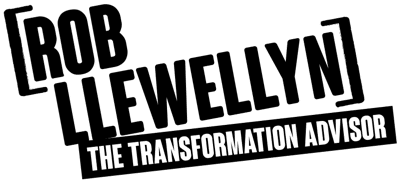A programme manager is a professional who oversees the planning, execution, and delivery of a specific programme or group of related projects within an organisation. Programme managers are responsible for ensuring that all projects within the program are aligned with the organisation's strategic goals, and that they are delivered on time, within budget, and to the required level of quality.
Programme management involves the coordinated organisation, direction and implementation of a dossier of projects and transformation activities to deliver outcomes and benefits relating to an organisation’s strategic objectives. But for years, Programme Management has been confused with Project Management, and the terms have been used both flippantly and interchangeably, which hasn’t helped recruiters and hiring managers identify the right people to manage programmes.

As Sergio Pellegrinelli once explained in a Cranfield article, “unfortunately, former project managers entrusted with major programmes are frequently not up to the task“. In such circumstances, it will not be uncommon to see a stakeholder with their head in their hands – a few months down the line.
Organisations often assign a member of their workforce who has some bandwidth, project and operational expertise, or a promotional promise to the role of programme manager. Others engage a consultant that has strong technical or functional expertise, but only a weak blend of the skills, attributes and capabilities required for effective programme management. Both of these situations can compromise the future of any programme of work from the outset.
While programmes and projects are both temporary organisations which aim to achieve benefits for sponsors, they have important differences. Programme management does not replace the need for good project management and vice versa – the two roles complement one another, but they certainly do not replace one another. Good project management remains important to achieving project success, but programme management can take you one step further and help you meet strategic objectives, provide better customer service, manage resources and stakeholders.
Pellegrinelli went on to explain that the approaches, knowledge and instincts that served project managers well in achieving project objectives are inadequate when it comes to programmes. He wrote; “They are unfamiliar with the human processes of adoption and adaptation needed to get something new to work – They are ill-prepared to deal with political tensions, divergence of interests and shifting external environments and stakeholder aspirations“.
In his paper called “Using PRINCE2 and MSP Together”, Andy Murray pointed out that the management focus for projects (by project managers) is on detailed specification (of how) and control of activities to produce products. Whereas the management focus for programmes (by programme managers) is on high-level specification (of why/what), stakeholder management, benefit realisation, dependency management, transition management/change acceptance and integration with corporate strategies.
Consider the definitions from PRINCE2 and MSP of Projects and Programmes.
PRINCE2: “A project is a temporary organisation that is created for the purpose of delivering one or more business products according to an agreed Business Case.”
MSP: “A programme is a temporary flexible organisation structure created to coordinate, direct and oversee the implementation of a set of related projects and activities in order to deliver outcomes and benefits relating to an organisation’s strategic objectives. A programme may have a life that spans several years.”
The responsibilities of managing a project and a programme differ, and so too do the skills, attributes, and capabilities required to undertake those responsibilities successfully. But many organisations remain unaware of this – and it's only a matter of time until the unwelcome consequences creep up on them.
In less than 9 minutes, the cartoon below takes a light-hearted look at the serious situation inside a fictitious firm, as Scott and Liz discuss the appointment of a programme manager for their $80 million K2 Programme.
During the conversation, Liz provides Scott with these two lists:
Activities the programme manager should perform:
- Programme planning and governance
- Programme and project integration management
- Programme scope management
- Programme time and cost management
- Programme quality management
- Programme human resource management
- Programme procurement management
- Programme risk management
- Programme reporting
- Stakeholder relationship management
- Benefit realisation management
Ten questions that a good programme manager should be asking:
- What integrated and holistic business transformation methodology are we using?
- How are we tracking progress and informing our various groups of stakeholders?
- How does the schedule and resource-list look, and how are they working together?
- How are we coordinating projects and programmes and ensuring they are aligned?
- What are the objectives and scope of each of the projects and programmes?
- How are we tracking time-and-costs and ensuring we are sticking to the budget?
- How are we ensuring we adopt best practices in terms of quality
- How are we ensuring that we have the right people in the right place at the right time?
- How are we ensuring delegation to 3rd party suppliers and optimising our spend?
- Who has assessed the health of the business transformation?
Let's look at eight core components of programme management.
- Programme planning and governance involves integrating plans into a joined-up overarching programme plan and then managing it. It also requires the establishment of governance policies, standards and structures. This will then contribute to producing a programme management roadmap and plan that are kept up to date, governance, organisation charts, roles and responsibilities and an escalation process.
- Programme integration management involves the coordination and integration of the projects and other key activities within the programme. It also involves establishing the support structure for the programme, which consists of programme frameworks, a programme management office, resources and tools. These activities should produce integrated programme plans, a programme management framework, PMO structure, roles and responsibilities, and a plan to staff the PMO.
- Programme scope management involves high level scoping and benefits analysis and agreeing both with all key stakeholders. Scope and benefits need to be managed carefully throughout the initiative. These activities should contribute towards the creation of a comprehensive program charter.
- Programme time and cost management involves defining the as well as planning timeframes and budgets. This should be monitored on an ongoing basis and reported upwards. Outputs should include capacity planning, control procedures, actuals and forecasts, and burn rate charts.
- Programme quality management involves embedding a quality management environment to establish quality requirements across the entire programme, including all projects and other activities, and ensure they are met. This includes quality control, quality assurance and quality improvement, which need to be documented.
- Programme human resource management is about ensuring the right people will be in the right place at the right time. Balancing available resources, skills and capabilities that are required to meet the needs of the plan is often a challenge. As is managing both the well-being and performance of the people involved. Resource plans with capacity planning, feedback reports, KPIs, teams events and good communication are all important here.
- Programme procurement management involves evaluating the need for additional skills and capacity and selecting the right suppliers to help satisfy the needs of the programme. This should include evaluating the potential to offshore or outsource work, and negotiating supplier contracts.
- Programme reporting involves reporting an appropriate level of programme performance, audit results, risks, and issues. This essentially provides senior management with the data they need to make informed decisions and take appropriate actions to safeguard the well-being of transformation. Change requests, risk and issues registers and programme performance reports are all part of this.
The next time you need to consider who you can entrust to deliver a high-value programme of work, consider the capabilities required to manage the programme, as opposed to the skills required to deliver a project.
